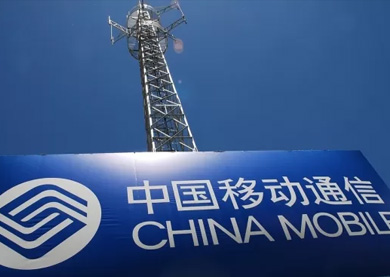Total Cost of Ownership of Telecom Batteries: Benefits of Lithium Solutions
 2025-09-16
2025-09-16Telecom batteries are critical for maintaining reliable network operations. They ensure base stations and towers continue to function during power outages, supporting uninterrupted connectivity. As telecom networks expand and energy demands increase, operators are looking for solutions that not only provide reliable power but also optimize long-term costs. Lithium batteries have become a key choice for this purpose.
Understanding Total Cost of Ownership (TCO)
Total Cost of Ownership (TCO) is more than just the initial purchase price of a battery. It accounts for all expenses that occur over the battery’s entire lifetime, providing a complete view of the investment needed to support telecom networks. Key components of TCO include:
Initial Acquisition Cost
This is the upfront price of purchasing the battery, including shipping and installation expenses.
Maintenance and Servicing Expenses
Batteries require periodic inspections, testing, and preventive maintenance. These ongoing costs can add up over time.
Replacement Frequency
The lifespan of a battery determines how often it must be replaced. Longer-lasting batteries reduce replacement costs and minimize operational disruptions.
Energy Efficiency and Operational Performance
Batteries that operate more efficiently consume less energy and provide reliable performance, which lowers operational expenses and ensures network stability.
For telecom operators and financial decision-makers, considering TCO offers a clearer understanding of the long-term costs and benefits of battery investments. It allows them to make informed decisions that balance reliability, efficiency, and budget over the battery’s entire service life.
How Lithium Telecom Batteries Impact TCO
Lithium batteries offer several features that contribute to reducing TCO:
1. Longer Lifespan
Lithium batteries are designed for extended cycle life. With proper management, they can last significantly longer than traditional solutions, which reduces replacement frequency and associated costs.
2. Lower Maintenance Requirements
Lithium batteries require minimal maintenance compared to other battery types. Fewer service visits and simplified monitoring reduce operational costs for telecom sites.
3. Higher Energy Efficiency
Lithium batteries provide higher charge and discharge efficiency. This means less energy is wasted, contributing to lower electricity costs over the battery’s lifetime.
4. Compact Size and Weight
Lithium solutions are often lighter and more compact, saving space in telecom cabinets or equipment rooms. Efficient use of space can reduce infrastructure costs and allow for easier site management.
5. Enhanced Reliability in Various Environments
Lithium batteries can operate reliably in demanding conditions, supporting telecom networks in high-temperature, high-demand, or remote environments. Reliable performance reduces the risk of downtime, which can have significant financial implications.
Financial Benefits for Telecom Operators
When telecom operators consider the total cost of ownership (TCO) instead of just the upfront purchase price, lithium batteries offer several clear financial advantages.
Reduced Operating Expenses (OPEX)
Lithium batteries require less maintenance and deliver higher energy efficiency. This lowers the time and money spent on routine service, monitoring, and electricity consumption, helping operators save on overall operating costs.
Fewer Replacements
Thanks to their long lifespan, lithium batteries need to be replaced less frequently. Fewer replacements reduce procurement costs and minimize labor and logistics expenses associated with battery changes.
Space and Facility Savings
Lithium batteries are often more compact and lighter than other battery types. This allows operators to use less space for installation, which can reduce facility requirements and associated costs for equipment rooms or cabinets.
Enhanced Reliability
Lithium batteries provide stable performance even in demanding conditions. Higher reliability reduces the risk of unexpected downtime, which can be costly in terms of lost service and emergency maintenance.
Conclusion
For telecom networks, total cost of ownership is a critical factor in decision-making. Lithium batteries provide a long-term solution that balances reliability, efficiency, and lower lifecycle costs. By focusing on TCO, operators and financial teams can make informed choices that ensure stable power supply while optimizing investment returns.
Looking for batteries that not only provide reliable power but also optimize long-term costs? Explore our smart telecom battery solutions now.






























 Name
Name Tel
Tel Email
Email Country
Country Company
Company Information
Information